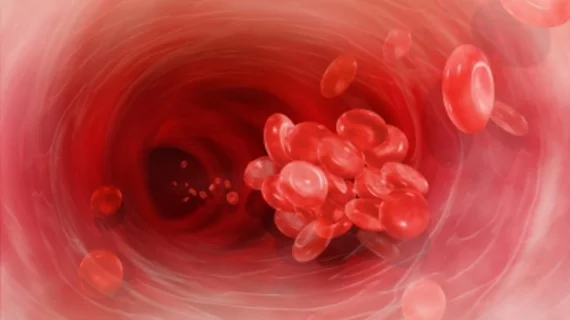Andexanet holds up as antidote for factor Xa inhibitors
Andexanet alfa (Andexxa), the only FDA-approved reversal agent for factor Xa inhibitors, was successful in mitigating bleeding events associated with that class of anticoagulants, researchers reported Feb. 7 in the New England Journal of Medicine.
The ANNEXA-4 study evaluated 352 patients who had acute major bleeding events within 18 hours of taking a factor Xa inhibitor. Patients were 77 years old on average and 80 percent of them were primarily indicated for anticoagulation due to atrial fibrillation.
An initial bolus of andexanet resulted in a 92 percent reduction in anti-factor Xa activity for patients taking rivaroxaban or apixaban, who comprised 91 percent of study participants. A two-hour infusion of the antidote followed that bolus and helped 82 percent of all patients achieve excellent or good hemostasis within 12 hours, based on prespecified criteria.
“Rapid specific reversal of factor Xa inhibition to hasten hemostatic control should improve clinical outcomes,” wrote lead author Stuart J. Connolly, MD, from the Population Health Research Institute at McMaster University in Hamilton, Ontario, Canada, and colleagues.
“The hemostatic efficacy of 82% in our trial compares well with the hemostatic efficacy of 72% observed in a previous study of prothrombin complex concentrate involving patients with major bleeding who were treated with vitamin K antagonists, which used similar criteria for assessment of anticoagulation reversal.”
A total of 34 patients (10 percent) experienced a thrombotic event during the 30-day follow-up period, with a near-equal distribution of events during the early and late phases of that timeframe. Eleven had an event within five days of andexanet therapy, 11 had an event between days six and 14 and 12 had an event between days 15 and 30.
The authors said these findings weren’t unexpected considering patients receiving factor Xa inhibitors in the first place are at high risk of clotting events. They were also an older population with a substantial burden of cardiovascular disease, and 64 percent experienced intracranial hemorrhage before being given andexanet.
“In our study, 14 percent of the patients died and there were thrombotic events in 10 percent,” they wrote. “Not surprisingly, a majority of events occurred in patients in whom resumption of oral anticoagulation was delayed or in patients who did not restart anticoagulation. After restarting of oral anticoagulation, no patient had a thrombotic event during the 30-day follow-up.”
Another important finding, according to the authors, was zero patients developed antibodies to factor Xa or factor X, or neutralizing antibodies to andexanet.
Connolly et al. said the biggest limitation of their study was the lack of comparison with a control group, an issue they plan to address with a randomized trial beginning later this year.
Portola Pharmaceuticals, which manufactures adexanet, sponsored this study and will also sponsor the upcoming randomized trial. The randomized study will compare the hemostatic efficacy and change in anti-factor Xa activity among patients with intracranial hemorrhage randomized to usual care or the reversal agent.

